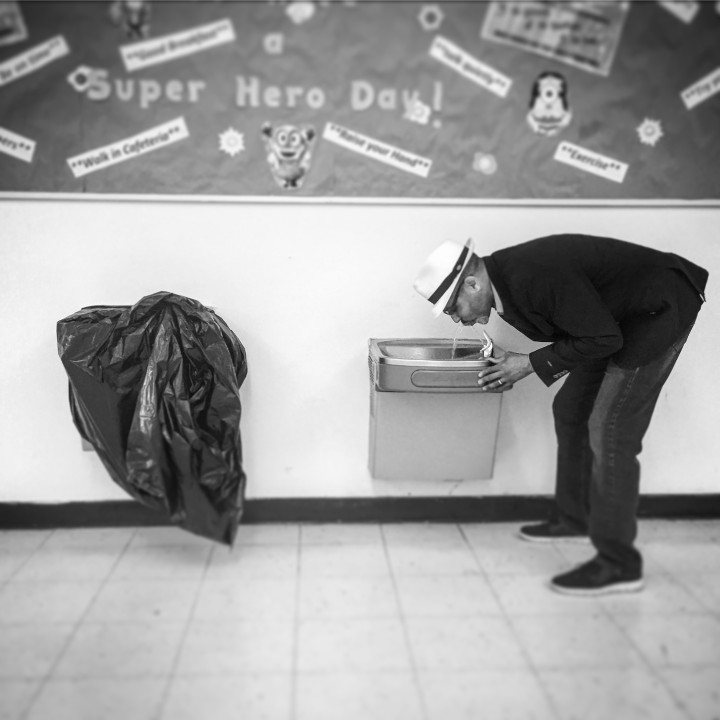
We Cannot Return to Normal
One week ago, George Floyd died in Minneapolis, Minnesota. On Memorial Day. A day set aside as a national holiday to remember the lives of military personnel who died in service to this country. Video streamed live on Facebook, and subsequently on other social media platforms, showed a police officer kneeling on George Floyd’s neck. Relentlessly. For over 8 minutes. I watched the video. I was shaken, saddened, angered, frustrated,horrified, heartbroken, and scared. I looked at George Floyd’s face slowly show signs his life was being taken from him. I imagined myself in his place. Nearly seven days later the emotions I felt last week remain raw and just as strong. I am still in despair.
In my experience, for people of color generally, and those of us who identify as African American specifically, what happened to George Floyd that day always haunts some part of our daily lives. Always. Social media and digital video merely allowed this reality to became instantly visible and easily accessible. George Floyd’s death and the subsequent protests for social and racial justice are reminders that the unrelenting culture of racism, hate, and division in the United States remains inescapable.
We have a decision to make. Do we stay steadfast with the merits of our current path or do we reconsider and recalculate the trajectory forward? We can return to a familiar path of systemic oppression and injustice, or we can recalibrate our movement forward and resist actively all forms of oppression. I am not typically in support of binaries; however, either we decide to make different choices and act on them, or we do not. The former path is familiar and requires little adjustment on the part of any of us. Nothing changes. If we select the latter, we must make more difficult choices and our actions cannot be random. We will need more than random acts of kindness. We need more than platitudes. We need more than vigils. We need more than prayers. We need to enact intentional acts of anti-oppression. Intentional acts of understanding. Intentional acts of critical self-reflection.
Our efforts and our actions and our work must now be dedicated to doing more than taking a stand or making statements or waiting for things to change. Our work and lives must now resist actively racial oppression.
Before George Floyd’s death, some members of our college community were familiar with what it means to be the subject of racial bias. Before George Floyd’s death, many of the students, staff, and faculty members of color we recruit feared for their safety in the presence of members of law enforcement while walking on the sidewalk, pulled over during a traffic stop, or confronted at their place of residence. They still do and will continue to experience life this way if we do nothing to dismantle the systems of oppression within the institutions we work and the social spaces we frequent. This cannot be an “us” or “them” equation. This is an equation of “we.”
Racial injustice will not dissolve through the work of people of color alone. We must commit ourselves to confronting racial injustice and systemic oppression. Together. In our policies. In our practices. In our conversations. In our publications. In our messaging. In our recruiting. In our committee work. In our research. In our creative practice. In our curricula. In our strategic plan. We must oppose and resist forms of oppression, together. It is our responsibility as educators, designers, artists, and humans to do so. No form of social injustice has been disbanded by the efforts of the oppressed working alone.
The social interactions and the intentional acts of opposing racial injustice we make from here on out will matter. They have always mattered. We need more than talk of social justice. We need social action. We can find comfort in the prospect of breathing again without masks, but we must never forget George Floyd cannot breathe, ever, again.
Now that we are aware, we must all hold ourselves accountable. Or we can return to normal.
Professor Emerita and Independent Research at Arizona State University
3yI posted this on Collaborate: "The greatness of a community is most accurately measured by the compassionate actions of its members!" Coretta Scott King, JAN. 17, 2000;12 AM FROM ASSOCIATED PRESS THANK YOU to all the art teachers, mentors, and professors trying to promote ART as a WAY to SURVIVE. Pushing for Compassion/Collaboration as the new norm!
Dean Carpenter, thank you for your thoughtful insights. I am thankful for your leadership and proud of our Univeristy. WE are Penn State! WE can make change happen!
Senior Architect at Gerber Architekten GmbH - Asia Team
3yDean B. Stephen Carpenter 2, well put, Bravo! &Viva: We not Me, transformative Change s will require sustained persistent conscious effort - We not Me, &USa not them -hpb
Dean Emerita, College of Arts & Architecture at Penn State University
3yGreat challenge for us all, Steve!
Associate Principal at Sikora Wells Appel
3yThank you Dean Carpenter for this most important and meaningful post.